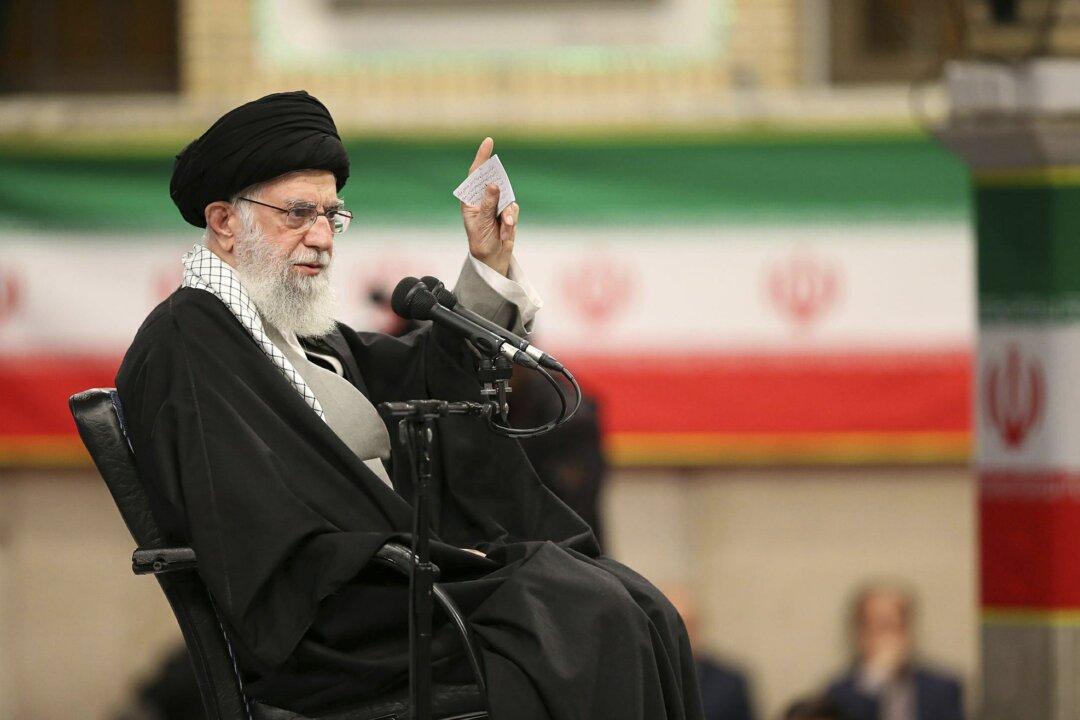Iranian Supreme Leader Ali Khamenei urged the Muslim world to support Hezbollah—a U.S.- and Israeli-designated terrorist group—on Sept. 28, as news emerged that Hezbollah leader Hassan Nasrallah was killed in an Israeli airstrike.
“The Lebanese have not forgotten that there was a time when the soldiers of the occupying regime were advancing toward Beirut, and Hezbollah stopped them, and made Lebanon proud,” Khamenei said in a Sept. 28 statement.





